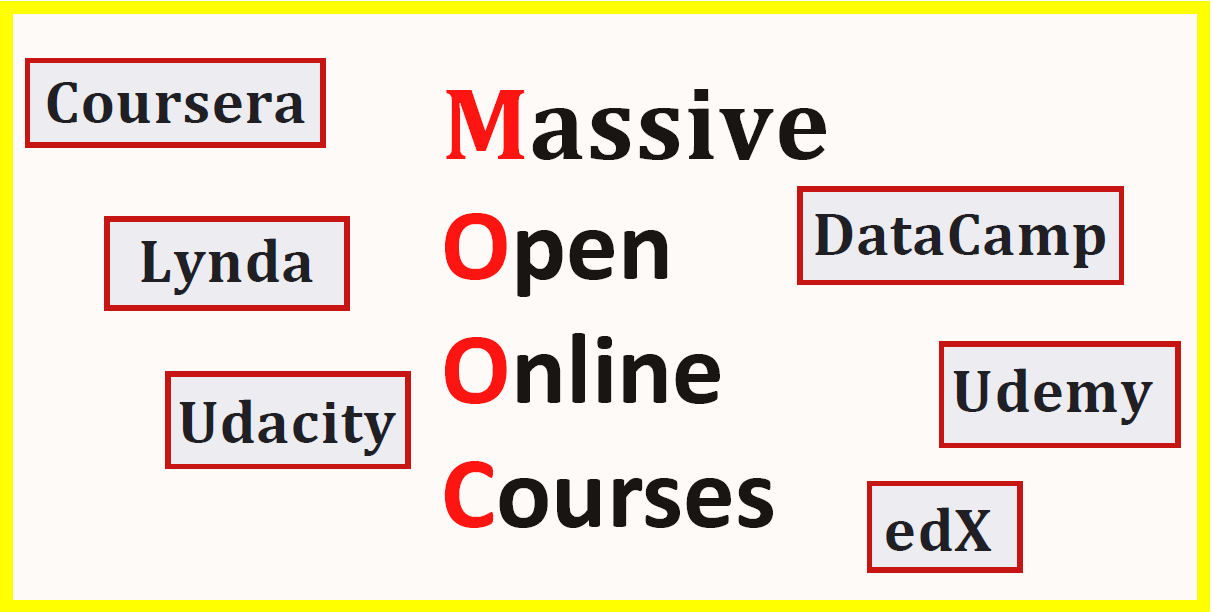
 Data Science MOOCs are too Superficial
Data Science MOOCs are too Superficial
Most massive open online courses are too superficial because they offer introductory-level courses. For in-depth knowledge, more is needed to increase your knowledge and expertise after establishing a foundation.

I. Introduction
Data Science, Machine Learning, and Analytics are considered to be among the hottest career paths. The demand for skilled data science practitioners in industry, academia, and the government is rapidly growing. The ongoing “data rush” is, therefore, attracting so many professionals with diverse backgrounds such as physics, mathematics, statistics, economics, and engineering. The job outlook for data scientists is very positive. IBM predicts the demand for data scientists to soar 28% by 2020.
The rising demand for data science practitioners has given rise to a proliferation of massive open online courses (MOOC). The most popular providers of MOOC include the following:
a) edx: https://www.edx.org/
b) Coursera: https://www.coursera.org/
c) DataCamp: https://www.datacamp.com/
d) Udemy: https://www.udemy.com/
e) Udacity: https://www.udacity.com/
f) Lynda: https://www.lynda.com/
Since MOOCs are becoming more and more popular, the natural question every data science aspirant should ask themselves is this: Are data science MOOC meant for me?
To answer this question, let us examine the advantages and disadvantages of MOOCs.
II. Advantages of MOOCs
MOOCs, for the most part, are free online courses available for anyone to enroll. MOOCs provide an affordable and flexible way to learn new skills. MOOCs cover a broad spectrum of online courses in leadership, analytics, data science, machine learning, professional skills, engineering, business & management, humanities, computer science, and much more. These courses are usually offered by top universities across the world like MIT, Harvard, UC Berkeley, University of Michigan, EPFL, Hong Kong Polytechnic University, The University of Queensland, and much more. Some courses are also offered by big corporations such as IBM, Google, and Microsoft. The greatest advantage of MOOC is the opportunity to learn from leaders and experts, and the privilege of taking courses from the world’s top universities.
III. Disadvantages of data science MOOCs
Most data science MOOC are introductory-level courses. These courses are good for individuals that already have a solid background in a complementary discipline (physics, computer science, mathematics, engineering, accounting) are trying to get into the field of data science. In my journey to data science, I found the following 3 data science specializations to be among the best in terms of quality and rigor.
a) Professional Certificate in Data Science (HarvardX, through edX)
b)Analytics: Essential Tools and Methods (Georgia TechX, through edX)
c) Applied Data Science with Python Specialization (the University of Michigan, through Coursera)
If you are interested in exploring the field of data science, I would recommend starting with MOOC. Then after building a solid background in data science fundamentals, you may then use the methods discussed in the next section to advance your knowledge in the field.
IV. Steps for advancing your data science knowledge beyond MOOC training
The following steps would enable you to advance your data science knowledge and expertise beyond the training received from MOOC.
a) Learning from a textbook
Learning from a textbook provides a more refined and in-depth knowledge beyond what you get from online courses. This book provides a great introduction to data science and machine learning, with code included: “Python Machine Learning,” by Sebastian Raschka. The author explains fundamental concepts in machine learning in a way that is very easy to follow. Also, code is included, so you can actually use the code provided to practice and build your own models. I have personally found this book to be very useful in my journey as a data scientist. I would recommend this book to any data science aspirant. All that you need is basic linear algebra and programming skills to be able to understand the book. Other excellent data science textbooks are “Python for Data Analysis” by Wes McKinney, “Applied Predictive Modeling” by Kuhn & Johnson, “Data Mining: Practical Machine Learning Tools and Techniques” by Ian H. Witten, Eibe Frank & Mark A. Hall, and so on.
b) Network with other data science aspirants
From my personal experience, I have learned a lot from weekly group conversations on various topics in data science and machine learning by teaming up with other data science aspirants. Network with other data science aspirants, share your code on GitHub, showcase your skills on LinkedIn or Medium, this would help you to learn a lot of new concepts and tools within a short period. You also get exposed to new ways of doing things, as well as to new algorithms and technologies.
c) Apply knowledge to real-world data science problems
Keep in mind that online courses alone will not make you a data scientist. After establishing a strong foundation in data science, you may seek an internship or participate in Kaggle competitions where you get to work on real data science projects.
V. Summary and conclusion
In summary, we’ve discussed the advantages and disadvantages of data science MOOC. If you have a solid background in an analytic discipline such as physics, mathematics, economics, engineering, or computer science, and you are interested in exploring the field of data science, the best way is to begin with MOOC. Then after establishing a solid foundation, you may then seek other ways to increase your knowledge and expertise, such as studying from textbooks, engaging in projects, and networking with other data science aspirants.
Additional Data Science/Machine Learning Resources
Data Science Minimum: 10 Essential Skills You Need to Know to Start Doing Data Science
Essential Maths Skills for Machine Learning
5 Best Degrees for Getting into Data Science
Theoretical Foundations of Data Science — Should I Care or Simply Focus on Hands-on Skills?
Machine Learning Project Planning
How to Organize Your Data Science Project
Productivity Tools for Large-scale Data Science Projects
A Data Science Portfolio is More Valuable than a Resume
Original. Reposted with permission.
Related:


 Data Science MOOCs are too Superficial
Data Science MOOCs are too Superficial